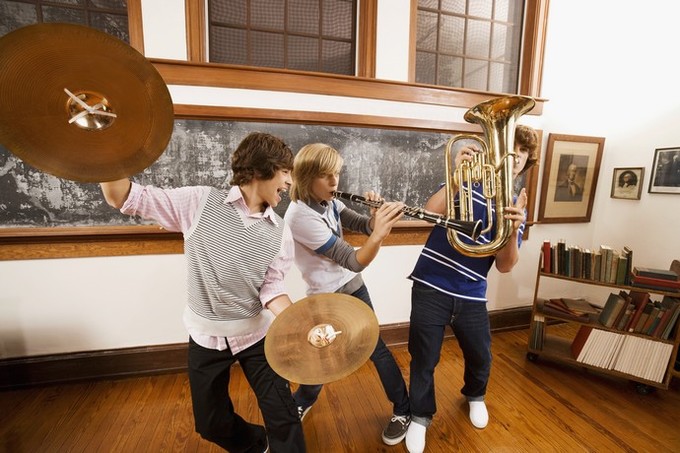Psychology Scientific and life: What is the difference?
We are aware of this or not, we face psychic phenomena every day: we see the differences of our own mood, we see how the nature of our children is changing as they are changing when not in the spirit of the head. It would seem that we don't need special knowledge for this. Moreover: everyday psychology - sphere, of course, more ancient. Even before the emergence of psychology as science, knowledge was fixed in the form of archetypes, fixed in proverbs and sayings.
Psychology is like science and everyday practices, a common goal: learn to understand mental phenomena and manage them. So what is the difference between them?
I will give five differences that formulated the Russian psychologist Julia Borisovna Hippenrater.
1. Last psychological knowledge is specific, scientific psychology displays patterns.
Numerous television programs ("Let's get married", "let them say", "Male and Women's", "about love") are built on the same scenario. Details of the problem, experts and viewers empathize the hero, express opinions and advice. But are psychological problems solve? Not. Most often, as a result of the discussion, a feeling of coincidence with life experience of invited experts arises. The viewer is experiencing emotion, but does not solve his problem. The same thing happens if a girlfriend or neighbor stands in the role of "psychologist".
Situation
The young mother complains with his peer, a neighbor of the house, on his four-year-old son: he completely stopped obitably, scatters and breaks toys.
Lowish psychology
"You don't leave it so much," the universal council gives a neighbor. - Tell my husband to be painted with him! Now our silk has become - so the father is afraid. "
Scientific psychology
Professional psychologist give advice will not. He first will try to find out what caused such a child's behavior. Maybe the scene of aggression, which he saw on TV? (The scientific basis of such an assumption is the theory of socially learning Albert Bandura.) Or the lack of due attention from parents? (Psychoanalytic theory of Sigmund Freud.) Or maybe the irritability of a mother or father on weekends? (Sunday neurosis or the manifestation of the existential crisis due to the lack of meaning in life in Viktor Frankl.)
Finding out the reason, the psychologist will work with it, adequately picking up the correction method.

2. East psychology relies on the experience of everyday life, scientific - on experimental methods.
In everyday life, we are forced to be limited to observations and reflections: "Why did it happen to me?" The scientific path consists in the Scheme "Experiment - theory - Practice" and relies on scientific methods: analysis and synthesis, experiment, projective techniques.
Situation
A young ambitious leader unexpectedly faced the situation: he cannot withstand his subordinate, who twice as older than him and enjoys a special authority among his colleagues. It's a problem, it may formulate this: "What should I do not blush at the meeting and not to lower your eyes like a schoolboy?"
Lowish psychology
A household answer may be like this: "Look not straight into the eyes, but a little higher, on the forehead area." Even if the young man tests this method and temporarily decides the problem, such a "victory" will be imaginary.
The psychologist will solve a deeper problem, and not eliminate her "symptoms"
Scientific psychology
The psychologist will solve a deeper problem, and not eliminate her "symptoms". In social psychology, a number of experiments are known to describe the behavior of informal leaders in the organization: such is probably the subordinate. So, the experiments of Elton Mao revealed that informal leadership is important for the Group's activities. And the task of the head is not to be able to suppress when communicating, but to know the resources of his team and direct them as efficiently as possible to achieve organizational purposes. It is for this that you need to strive.

3. Last psychological knowledge of intuitive. Scientific are rational and conscious.
The ability to unknowingly processing information allows even a one-year-old child to understand, with whom he can be capricious with whom there is no, however, such data is not supported by logical reasoning nor evidence. This is intuition. Of course, some researchers are perfectly developed intuition, but they always support their guesses to experiment.
Situation
The story with the son-nine-grader brings the mother to despair: "In school, it is complaining about it: it's good, but the classmates are laugh in the lessons, breaks out classes. At home he is quiet, attentive. I feel it well - well, he can not behave like this! I do not know who to believe: to himself, son or teachers? The husband advises to write a complaint to the Department of Education, let them figure it out. But something stops me from such a step ... "
Lowish psychology
Intuitive "feel" and "something" absolutely do not give a woman to make a wrong step, but it does not receive an answer to his question with the help of intuition.
Scientific psychology
What is the scientific explanation of this situation? In social psychology, the dependence of behavior on the presence of other people has long been studied and described. American psychologist Norman Triplett still at the end of the XIX century drew attention to the fact that cyclists rode faster when there were many people around, and slower when in the park was curs too. So the effect was opened, later called social facilitation. It is he who stands for the actions of the teenager, and supports his social motive "to take a certain status in a reference (reference, meaningful) group of peers": not possible through markers, let's try in jokes.

4. Scientific knowledge is transmitted by fastening in terms and scientific literature. The possibilities of transfer of everyday knowledge are very limited.
Is there everyday experience from the older generation to the younger? No matter how much you wanted to believe in it, no. At 30, we crush: "I had to listen to mom," but in 15 firmly confident that "she doesn't understand anything." The accumulation and transfer of scientific knowledge is possible due to the fact that these knowledge is formulated and recorded in the concepts, definitions and laws. The main way to transfer such knowledge becomes scientific literature.
Situation
The question is at one of the forums: "Advise what to read in order to better understand people, find an approach to any".
Lowish psychology
In response, visitors to the forum actively recommend different literature: from the Gospel to Castaneda. The forum takes several pages, on one of them the user offers to read the textbook on psychology. The reaction of the remaining participants is purely negative: "fog", "complex terminology, absolutely useless for the average man."
Scientific psychology
From the point of view of science, a rapid protest against psychology textbooks is caused by the desire to preserve their "I-Concept" (according to Robert Berns): it launches the mechanisms of psychological protection, if the new experience does not fit into existing ideas about themselves, and helps to interpret the traumatic experience or deny the personality his.

5. Scientific psychology relies on the extensive actual material.
In all its volume, such material is not available to one carrier of everyday psychology, which rich life he led and with which number of people did not communicate.
Situation
A young specialist for the first time in life is appointed to a leadership position. He has to build a relationship in the team, approving the leadership position, but he does not know what to rely on.
Lowish psychology
The unprofessional scenario of the decisions of the contradictions in the working team involves a situational recommendation, such as: "If you want to do well, do it" or "Propyship all in job descriptions."
Scientific psychology
A psychologist who advises the client on the problem of leadership in the organization will rely on the theory of the transformational leadership of James Burns, the types of leadership of Fedlera Freder, Douglas McGregor's human resources and others. Each of them relies on the extensive empirical material.
***
It is not necessary to consider scientific and everyday psychology as opposing parties: they complement each other. The practice of communication and life experience serve material for scientific understanding of mental phenomena and vice versa. The time of abstract ideas passed: today the main task of those who deal with the problems of human psyche, not to make another brilliant idea, but to make it "she worked."
about the author

- Head of the Master Program "Leadership in civil and public initiatives management" Moscow Institute of Psychoanalysis , business coach, coaching consultant.



